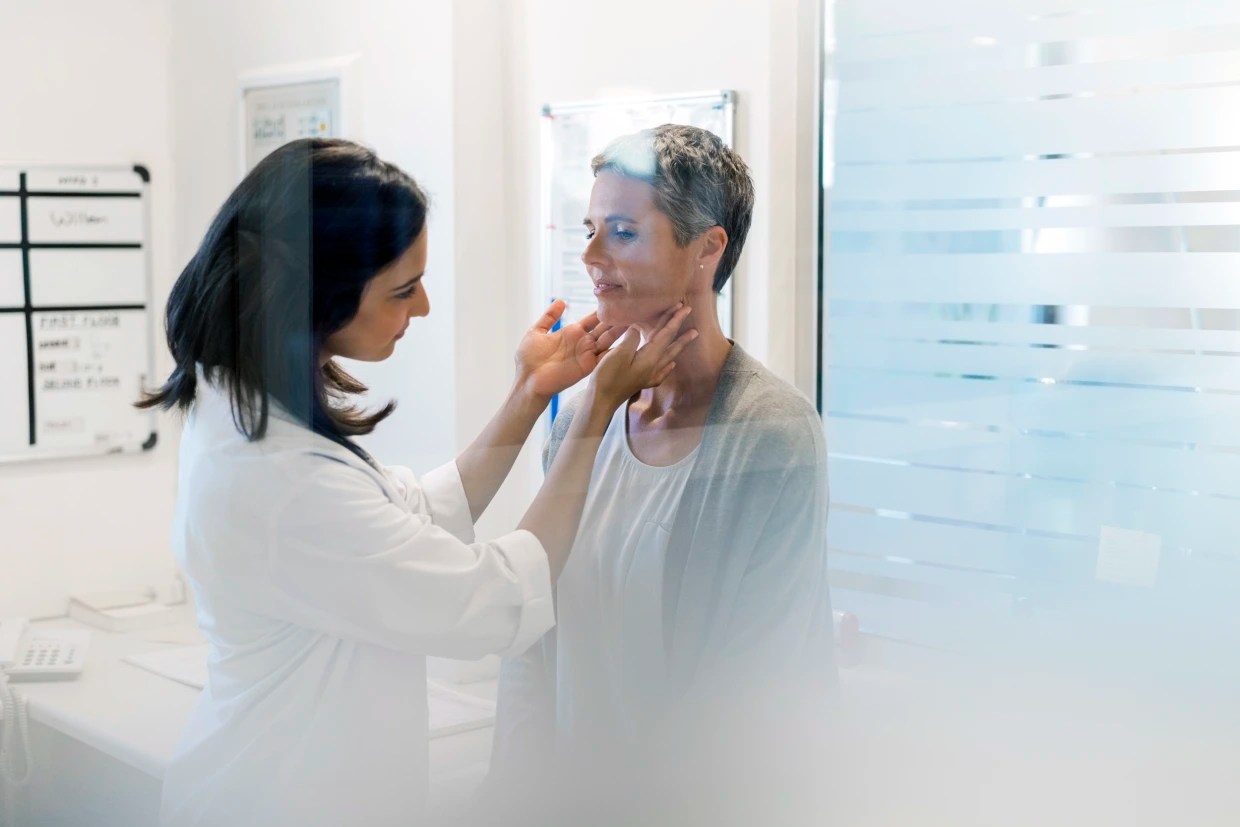Over the last decade, many researchers and healthcare professionals have been enthusiastic about antioxidant supplements. And today, it's estimated that as many as 30 percent of Americans are taking an antioxidant supplement. The hope for antioxidants has been rooted in encouraging observational and test-tube studies that suggested antioxidants might lower risk of conditions as varied as cancer, heart disease and age-related eye disease. But disappointing news about vitamin E made headlines last month.
The study behind the news, published in the Archives of Internal Medicine, showed that vitamin E did not appear to lower risk of cardiovascular disease. This study, led by Rachel S. Eidelman, of the Miami Heart Institute, was a review of seven large clinical trials that involved more than 50,000 people in total. The study authors concluded vitamin E had no risks or benefits for study participants who took supplements.
Still, organizations such as the American Heart Association and the American Cancer Society continue to encourage people to eat a diet rich in fruits and vegetables, whole grains and nuts that contain a variety of antioxidants. And some experts maintain that there may still be a role for antioxidant supplements, which allow people to attain higher levels for these vitamins than could be derived from food, in the prevention or treatment of certain conditions. Below, antioxidant researcher Norman Krinsky, PhD, emeritus professor of biochemistry at Tufts University School of Medicine in Boston, shares some of his knowledge of these complex compounds.
What is an antioxidant?
An antioxidant is usually a small molecule that is capable of interfering with various free radicals and oxidative processes, thereby protecting the body. A free radical is a molecule that has what is known as an unpaired electron, so it's looking for something to react with. It can therefore disrupt normal chemical reactions in the body as it attacks other molecules. We make radicals normally in our body. I think the best example is when we have a bacterial infection, our white blood cells are mobilized to go after bacteria, and they kill bacteria by a process in which the white blood cells generate free radicals. So free radicals can be beneficial to the body, but if they are produced in excess, then they can be harmful.
Free radicals are generated during oxidation process. Oxidation goes on all the time. This is not a bad thing. In fact, oxidation is absolutely essential for life. We derive energy by oxidizing our food. So this is very important, but it's those cases where oxidation gets out of control that may in fact be harmful.
What are the major antioxidants?
The major dietary antioxidants are vitamin C, or ascorbic acid, which is a water-soluble antioxidant, and vitamin E, commonly referred to alpha-tocopherol. That's a fat-soluble antioxidant. Carotenoids, such as beta-carotene, are also antioxidants under a number of conditions. But the major ones are really vitamin E and vitamin C.
Health
How do we obtain antioxidants from food sources?
Most people in this country get an adequate amount of vitamin C from food sources. We normally get it from things like orange juice. Vitamin E is not as available in the diet, but we can get vitamin E from various nuts and oils. The so-called provitamin A carotenoids, which are those that can be converted in the body to vitamin A, are primarily beta-carotene from green, leafy vegetables; alpha-carotene, which is also present in green, leafy vegetables, but in a much higher amount in carrots; and a compound called cryptoxanthin, which tends to be present in citrus fruits.
How does the oxidative process contribute to cardiovascular disease?
For many years there's been a hypothesis that one of the major problems generating cardiovascular disease is that some of our circulating lipoproteins—in particular, the so-called low-density or "bad" lipoprotein—can become oxidized, and that this oxidized low-density lipoprotein (LDL) is harmful. Therefore people began considering the possibility that if they could modify the extent of oxidation of low-density lipoprotein with antioxidants, they could modify either the onset or the course of coronary artery disease.
How does this new study question the value of vitamin E taken to lower risk of cardiovascular disease?
The main thrust of this article by Eidelman is when you look at large intervention trials—meaning that the investigators added vitamin E to the diet to see the effect on coronary heart disease—and you pool all of the data, as they did, there's simply no difference between the subjects that received vitamin E and the subjects that did not receive it. There is no difference in the cardiovascular events or cardiovascular deaths. So that would certainly make it look as if vitamin E has no effect.
But this is pooled data of seven different studies, and in a sense that's good, but in another sense, the studies were quite different, and you have to ask whether it's fair to pool all of this data and come out with a single answer. For example, some of the studies used synthetic alpha-tocopherol, whereas other studies used natural alpha-tocopherol, and there are differences in these compounds.
Other studies have looked at even more trials that were included in the Eidelman paper and have found a pattern. That pattern is that in those studies where they used a synthetic alpha-tocopherol, there was never any evidence of a positive effect. Not a negative effect, but not a positive effect. Whereas in the six studies that used the natural alpha-tocopherol, four of them showed a positive effect and two of them showed no effect.
There is a biological difference between the synthetic and the natural vitamin E supplements in that the natural one is essentially saved by the body after we absorb it, whereas in the synthetic one, half of it tends to be excreted quite rapidly. I think that it would be important to compare in a single study a natural vs. synthetic vitamin E supplment with respect to some aspect of coronary heart disease. You want at least 1,000 people involved in the study, and the intervention may take several years.
The other thing is that the studies are confused by the fact that vitamin E is not the only material that's added. Very frequently you find that it will be vitamin E in addition to ascorbic acid or vitamin E in addition to ascorbic acid and beta-carotene. So when you see an effect under those circumstances, you've got to ask yourself: What's causing the effect?
What is the role of antioxidants in the prevention of eye conditions?
There are two eye conditions that are presumably related to antioxidants or other nutrients, and that's age-related macular degeneration, which is an irreversible loss of vision that occurs with aging, and cataract, which is a clouding up of the lens that prevents normal vision.
There have been population studies indicating that diets that are low in fruits and vegetables increase the incidence of cataracts and of age-related macular degeneration. But it's still difficult to interpret those results, because you have to ask: What does the person who eats fruits and vegetables do in addition to the good diet? For example, people who have a low intake of fruits and vegetables tend to have a much higher incidence of smoking and are less likely to exercise.
Now, age-related macular degeneration causes blindness or degeneration in the very back of the retina, where we have our maximal central vision. There is a little yellow spot in the back of our retina that is called the macula and when that area of the retina degenerates, you have age-related macular degeneration. One of the interesting things is that the yellow in the macula is made up of the dietary carotenoids lutein and zeaxanthin, which are related to beta-carotene.
There is good observational evidence that people who eat diets rich in green, leafy vegetables have a lower risk of developing age-related macular degeneration. People who have higher blood levels of lutein and zeaxanthin that come from green, leafy vegetables also have a decreased risk of developing age-related macular degeneration. So the thought now is, "Maybe if we could increase our intake of lutein and zeaxanthin, we might be able to prevent this irreversible blindness in the elderly."
That's a possibility, but that's a possibility that has to be tested. There have been some very preliminary tests that have been initiated, but the National Eye Institute is about to begin a large trial to study this question.
What do we know about antioxidants and cancer?
We don't have any evidence of antioxidant capabilities of preventing cancers, or, for that matter, of decreasing the progression of cancer. And we don't know whether free radicals or oxidation is involved in the process of cancer development.
If you do population studies, you do find an association between certain antioxidants and a lower risk of certain cancers. The example right now is prostate cancer, in which it was demonstrated almost 10 years ago that men who had diets that were rich in tomatoes and tomato products had a lower risk of developing prostate cancer. Immediately, people began picking up on the fact that tomatoes are very rich in a carotenoid called lycopene.
If you supplement men with lycopene, will they decrease their risk for developing prostate cancer or the progression of prostate cancer once it's been diagnosed? There have only been preliminary studies that have been reported suggesting that this may be the case. But there is very interesting animal work and work in cells grown in culture that show lycopene may have effects on cells that have nothing to do with its antioxidant capacity. So there's a lot of active research going on, but we can't say anything definite yet.
What risks are associated with very high doses of vitamin E, C or beta-carotene?
If there's excess vitamin E in the diet from high-dose supplements, one of the risks is bleeding. With very high doses of vitamin C there are gastrointestinal disturbances. With beta-carotene, if you take high doses, skin discoloration occurs in a quarter of the population, maybe less. The skin will turn sort of orangey and that can be reversed when you stop taking high doses.
Two intervention trials of beta-carotene found, to the surprise of just about everybody, that a high-dose beta-carotene supplement increased the risk of lung cancer in smokers and in asbestos workers. It was only apparent in heavy smokers; those that seemed to smoke less than a pack a day did not have this increased risk. But we don't see any harmful effects in nonsmokers.
Is it a better idea to get these compounds from food than from supplements?
I think that's absolutely correct because when you're getting them from foods, you're not going to get them from a single food. You're going to have to eat a mixed diet, and that probably means that you're going to have to eat a considerable amount of fruits and vegetables and nuts that have been associated with decreased risks of a variety of chronic diseases such as cancer, cardiovascular disease, eye diseases. So the food seems to be protective. If you take out one component of the food and try to add it to the diet, you don't really see an effect.



